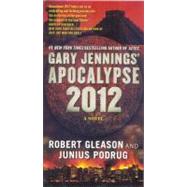
GARY JENNINGS was known for the rigorous and intensive research behind his novels, which often included hazardous travel. He passed away in 1999, leaving behind a rich legacy of historical fiction and ideas for new novels.
ROBERT GLEASON was Gary Jennings’ editor for a number of years. He lives in New York City.
JUNIUS PODRUG is an accomplished writer of both fiction and nonfiction. He lives on Cape Cod.
The New copy of this book will include any supplemental materials advertised. Please check the title of the book to determine if it should include any access cards, study guides, lab manuals, CDs, etc.
The Used, Rental and eBook copies of this book are not guaranteed to include any supplemental materials. Typically, only the book itself is included. This is true even if the title states it includes any access cards, study guides, lab manuals, CDs, etc.